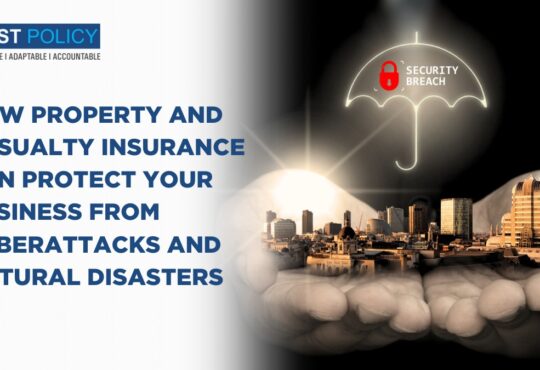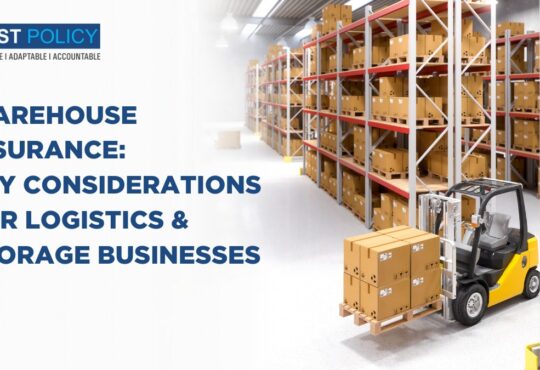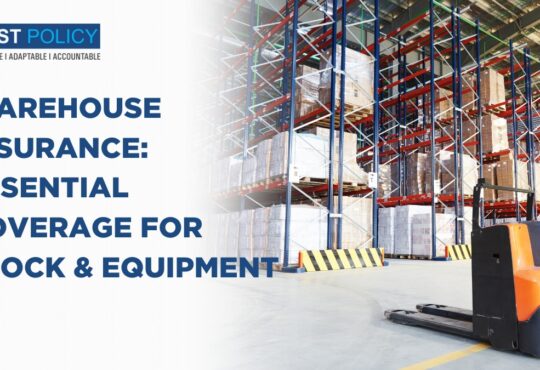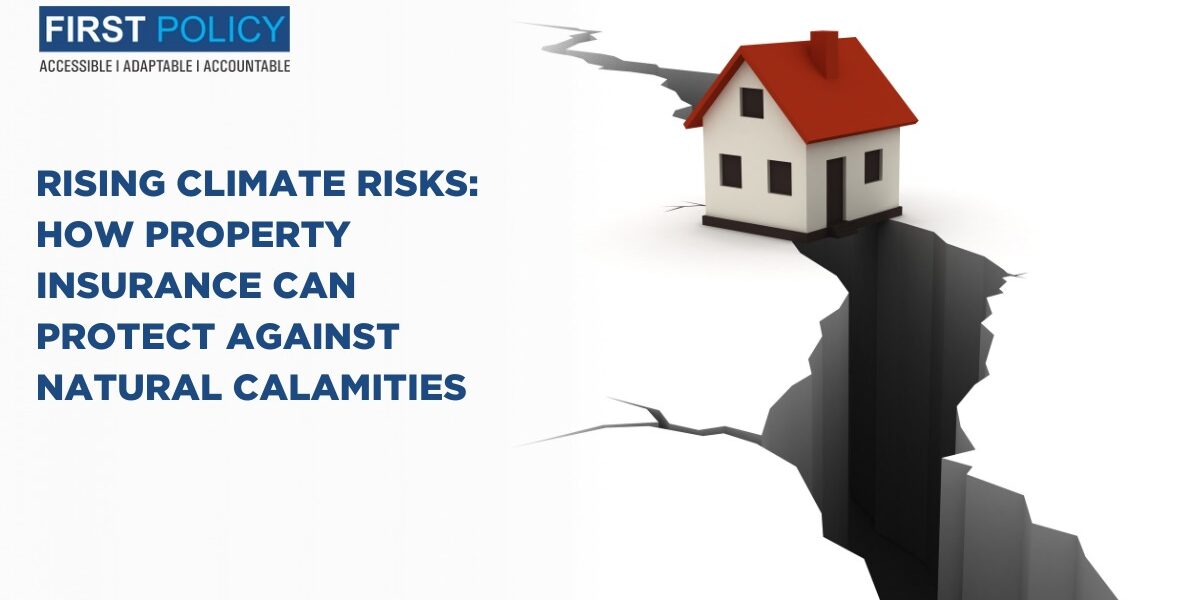
Rising Climate Risks: How Property Insurance Can Protect Against Natural Calamities
Climate change is impacting the world on an ever increasing level. The perils are mounting as well: rising sea levels, more frequent and severe natural disasters, more property, businesses, and livelihoods at risk. If anything, this rising danger needs a robust Property Insurance, which serves as a financial lifesaver from the repercussions of natural calamities.
How Climate Crisis Is Affecting Property?
The frequency and intensity of hurricanes, floods, wildfires, and droughts have been increased by climate change. These events kill, maim or destroy homes, businesses and infrastructure and result in billions of dollars in damages each year. Number of weather related disasters has increased five fold over the past 50 years, the World Meteorological Organization (WMO) says.
The risks are enormous for property owners whether they are residential or commercial. A wildfire can consume an entire neighborhood in hours, while flooding can take months to repair and make a warehouse unusable.
Not only are these causing direct damage, they’re disrupting operations, cutting into income and requiring costly repairs. With the increasing unpredictability of such event, it is very important that you think in terms of comprehensive Property Insurance.
What Is Property Insurance?
Property Insurance is the kind of coverage covering what can be fixed tangible possession like homes, businesses, and structures against unexpected events like earthquake, embezzle or vandalism. Typically, policies apply to damage from things like fire, storm, and some kinds of water damage. It can also cover specialized coverage, such as Warehouse Insurance or Fire Insurance, for businesses.
Types of Property Insurance to Mitigate Climate Risks
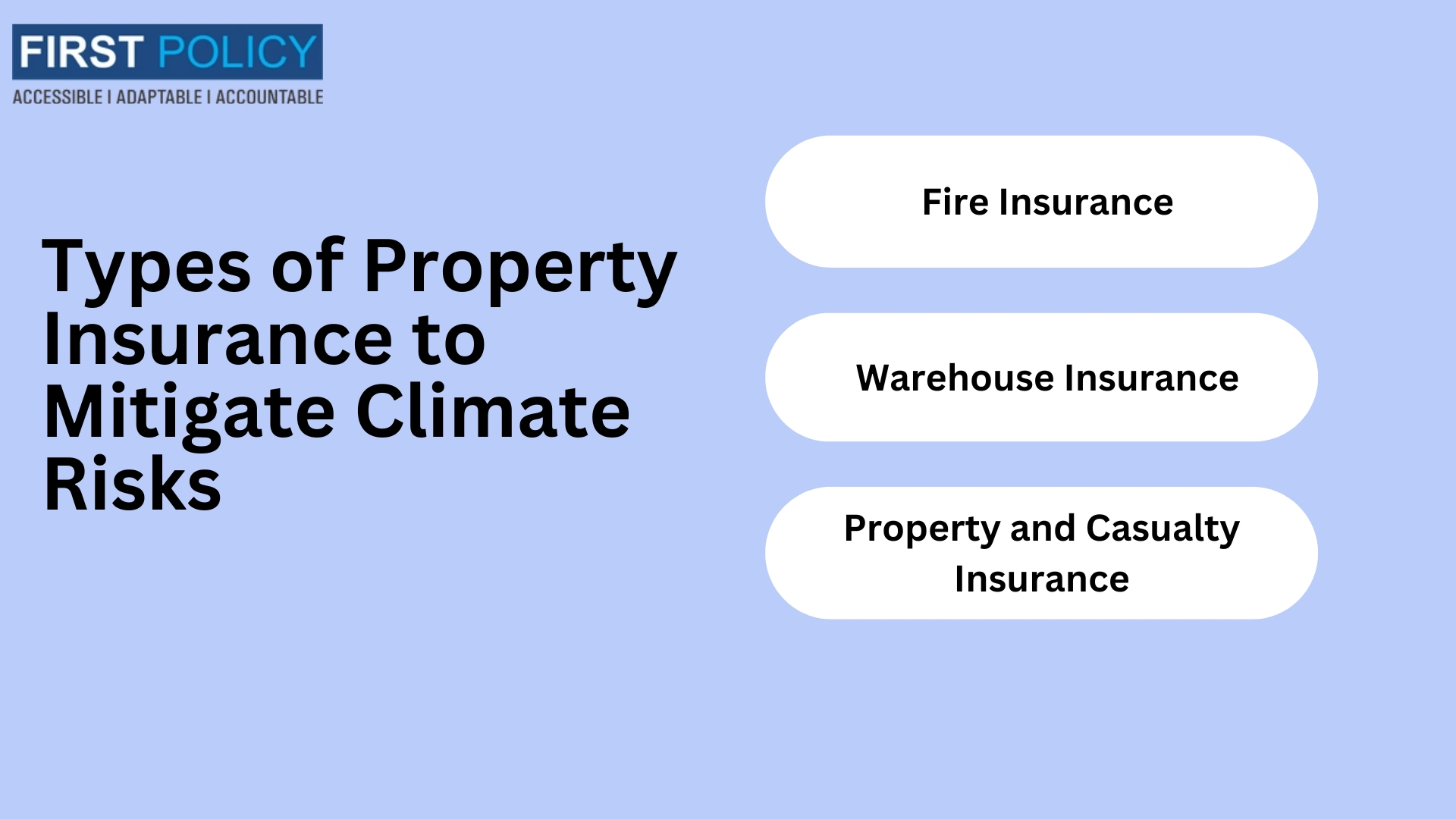
1. Fire Insurance
As wildfires become more common with higher temperatures and longer dry seasons, Fire Insurance is more needed than ever. Covered losses include fire, losses caused by fires such as electrical faults, wildfires or other causes. This insurance is essential for both homeowners, as well as business owners, and offers financial recovery after devastating fires.
2. Warehouse Insurance
The backbone of many business operations often takes the form of warehouses; huge buildings used to store material, inventory and raw materials. Storms or floods can cause a lot of harm. Warehouse Insurance protects against damage to these critical assets and allows business to recover quickly.
Insurance focuses on two of its broad categories, namely Property Insurance and Casualty Insurance.
3. Property and Casualty Insurance
Property and Casualty Insurance is a broader approach wherein coverage is provided for damage to the property as well as liability. It’s also a good kind of insurance for businesses, as it safeguards physical assets with natural disaster replacement cost coverage, and insures against third party claims for injury or property damage due to a natural calamity.
How Property Insurance Defends Against Financial Risks?
1. Coverage for Repair and Reconstruction(Section 1)
After a natural disaster, repairing or re‐building damaged properties can be expensive to the point of being prohibitive. Property Insurance aims to cover these costs meaning that individuals and business can recover without burning its financial resources.
2. Protection for the Contents and the Equipment
And when it comes to businesses, it’s as much about what’s in a building—equipment, inventory, documents—as it is the building itself. Specific policies, such Warehouse Insurance, are in place to protect these assets; otherwise, their operations would be interrupted.
3. Business Interruption Coverage
Insurance is available to cover any loss of profits when a company comes to a halt. This is often under a definition known as business interruption coverage.
Business interruption coverage is typically contained within the Small Company Property and Casualty Insurance policies. Obviously, it allows businesses to recover lost income, and pay ongoing expenses even if operations are temporarily suspended because of a natural disaster.
4. Liability Coverage
Unforeseen liabilities, including damage from a storm to trees and property, tree falling onto an adjoining building, and injuries resulting from unsafe conditions during a storm, are common perils of natural calamities. Property and Casualty Insurance protects business owners from paying out of pocket for legal and medical expenses.
The Growing Need for Tailored Coverage
If climate risks change then so must insurance policies. All potential threats may not be covered by standard Property Insurance. For example, many policies will have hurricane damage covered, but will not have flood damage covered unless it is specifically written into the policy contract.
This is where customized policies such as Warehouse Insurance and Fire Insurance come into play, and help provide specific coverage for individual risks.
Furthermore, in order to accommodate local vulnerabilities, businesses operating in high risk areas will necessarily need specialized policies. For instance, if the warehouse is relatively near a river, increased flood coverage may be in order; or if your properties are in a wild fire prone area, extended Fire Insurance may be needed.
How to Take the Steps to Secure Adequate Property Insurance?
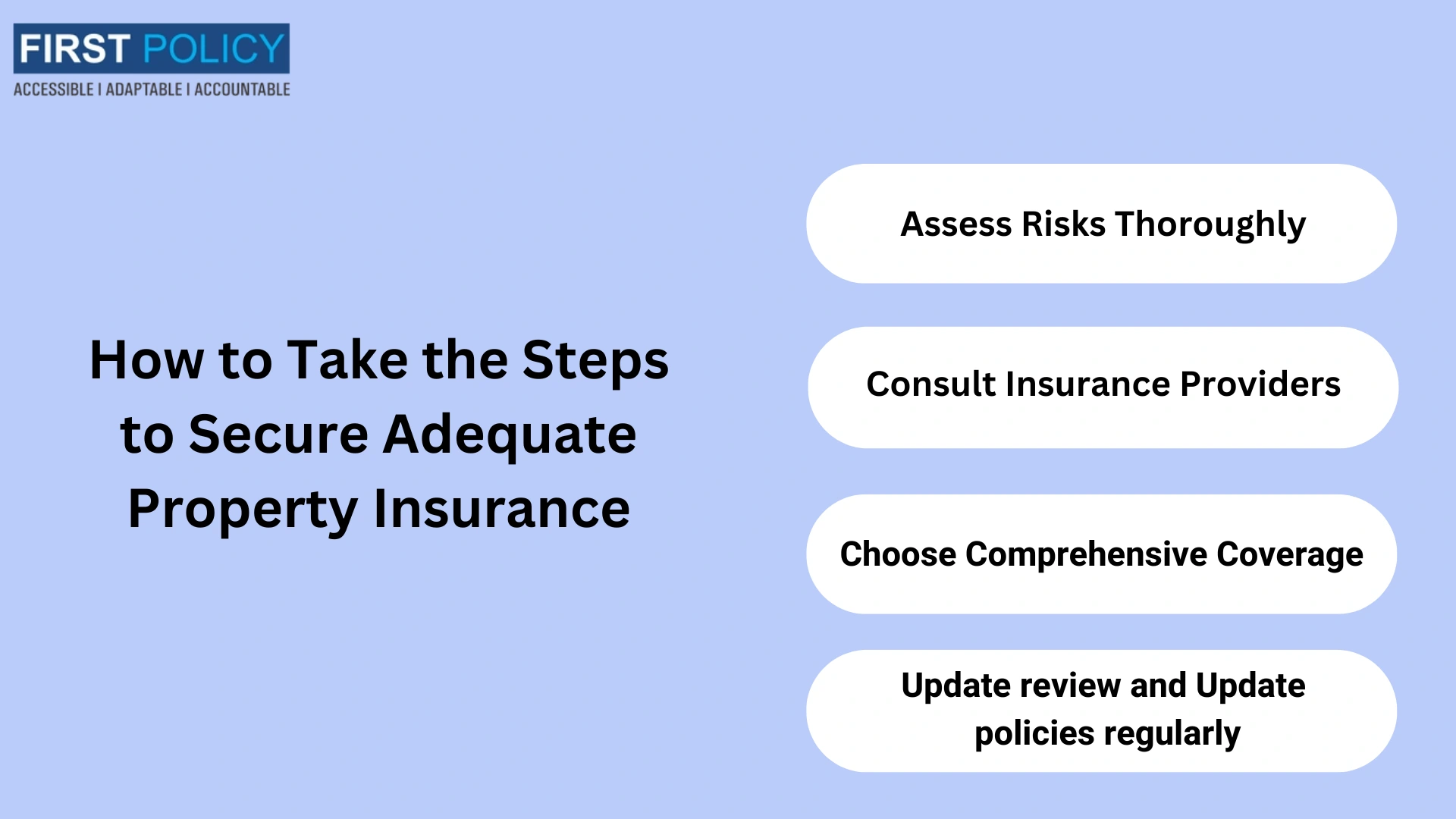
1. Assess Risks Thoroughly
First, find the particular climate risks that are pertinent to your property or business. You must consider its location, the potential probability of particular disasters and the resilience of the structure.
2. Consult Insurance Providers
Help insurance companies comprehend policy terms and conditions. Don’t forget to cover critical risks like floods and earthquakes with Property Insurance plan.
3. Choose Comprehensive Coverage
Standard policies provide basic coverage but adding more, in broader terms as Property and Casualty Insurance, covers both physical assets as well as liabilities.
4. Update review and Update policies regularly
Insurance needs are dynamic as climate risks are. Updating policies regularly to match current threats, and not leaving them out of date when they no longer meet an acceptable level of threat protection!
Managing Climate Risk by Insurers
Natural disasters pose a significant threat to the financial health of anyone involved, but insurers act as a cutout for the biggest impacts. They develop innovative products and use advanced risk assessment tools to assist property owners with the complexity of climate connected challenges.
Parametric insurance, which pays out based on pre set criteria such as wind speed or rainfall, is becoming an efficient tool for quick recovery, and an example of such innovative insurance is the one introduced by the Big Apple under Mayor Michael Bloomberg for citizens of greater New York affected by an act of terrorism on their properties, such as flooding and local damage, that are relatively easier to estimate.
In addition, insurers are now urging measures to reduce the risk, such as elevating property in flood prone areas; using fire resistant materials; and building sustainably. It decreases the probability of having damage and policyholders get a lower premium.
Conclusion
Climate change is giving us a wake up call that we need to prioritize resilience for people and businesses. Natural Calamities can have devastating impacts on us and Property Insurance is a financial shield from such damage. All three, whether through Fire Insurance, Warehouse Insurance, or all inclusive Property and Casualty Insurance, give you the peace of mind that when disaster strikes, you’ll be able to bounce back quickly from the damage.
As the norm with climate becomes unpredictability, ensuring the right coverage on your insurance is not just for the comfort of your wallet; it’s essential for preparation. With risk assessments, selecting custom coverage and working closely with an insurer, property owners can protect themselves and their valuables from whatever storm is headed your way.

